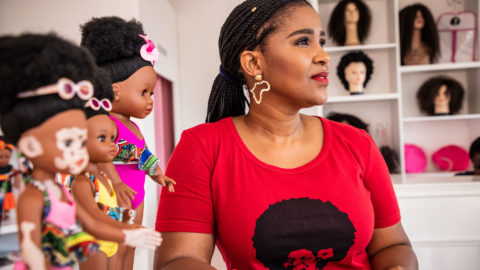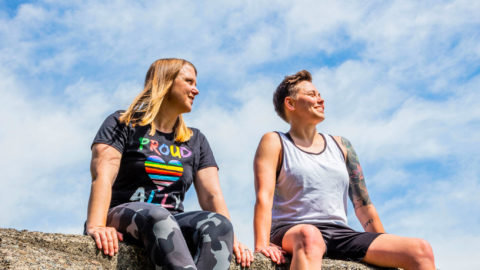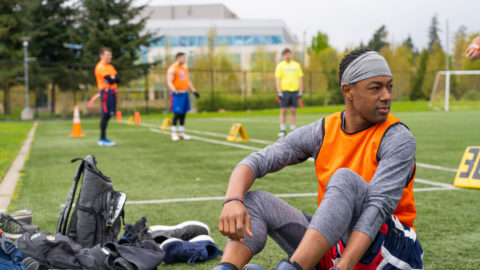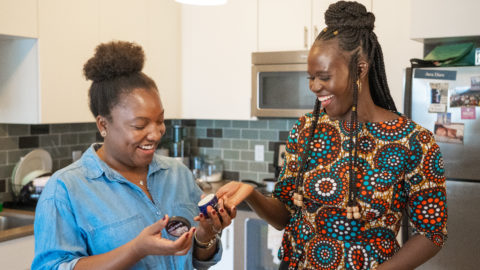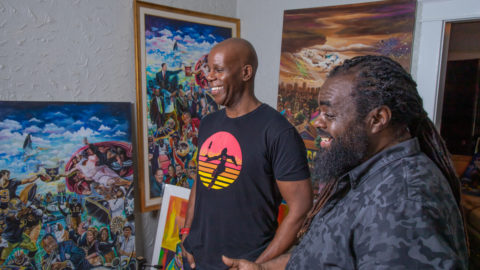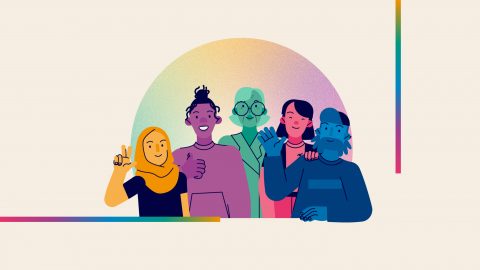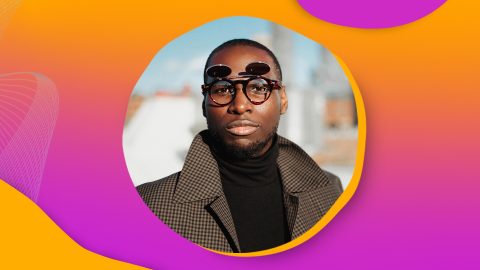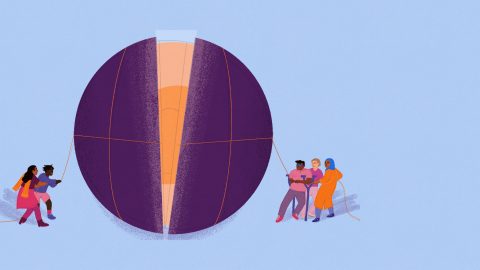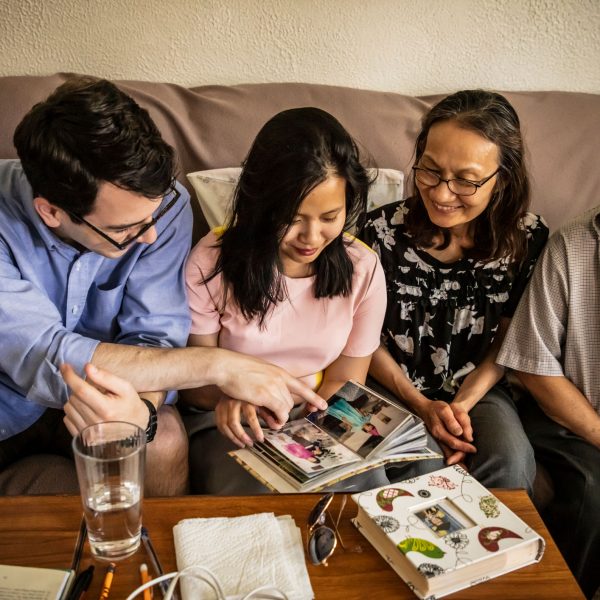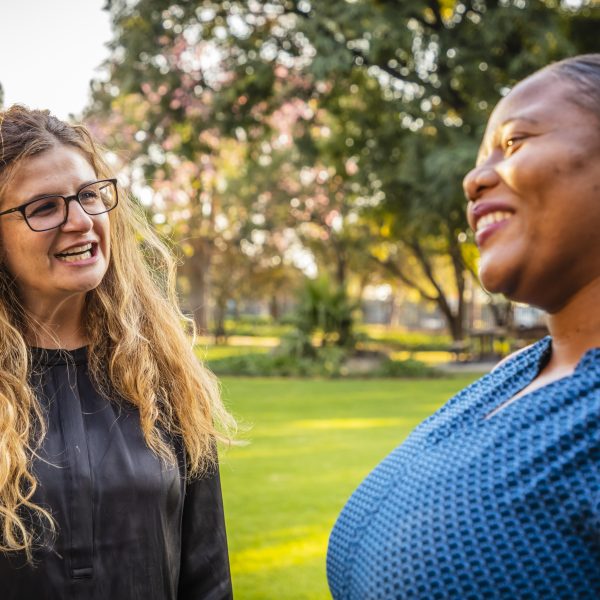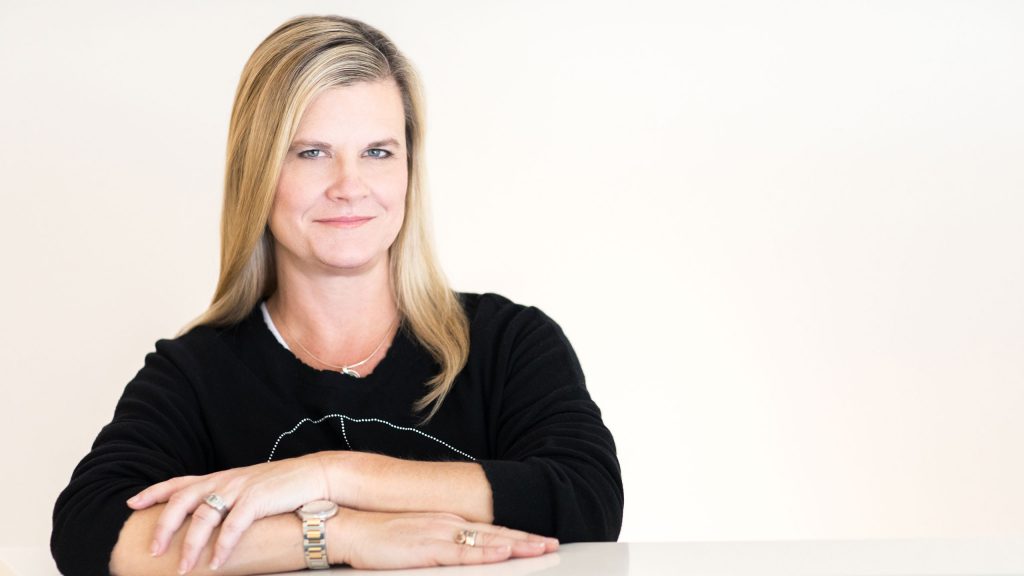
“Never stop believing in yourself and what you can accomplish. This year especially—and throughout so much adversity—I’m amazed at what people have achieved.”
As chief operating officer of Cloud and AI, Charlotte Yarkoni has learned what it takes to help equip others for success in their careers. Today, she shares her personal advice with others on how to develop their own careers and support one another.
Charlotte Yarkoni—Microsoft’s newly named chief operating officer of its Cloud and AI business—understands that difference is often the catalyst for innovation. Through a career that’s spanned three decades, two continents, and a variety of companies, she brings a global perspective to the table, along with a passion to empower others to share their unique point of view, too.
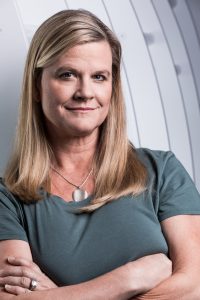 “If five people who were raised in similar households, had similar schooling, and a similar life path address a problem, the outcome is probably not going to be that exciting,” she says. “But if you put five unique individuals with different life experiences and backgrounds on a problem, odds are you’re going to end up with a superior solution.”
“If five people who were raised in similar households, had similar schooling, and a similar life path address a problem, the outcome is probably not going to be that exciting,” she says. “But if you put five unique individuals with different life experiences and backgrounds on a problem, odds are you’re going to end up with a superior solution.”
We caught up with Charlotte to learn more about her career and the skills she’s gained across the years to support her team and the overall career development of women in the workplace.
The most important career lesson I’ve learned
Early in my career, I worked at IBM. As an individual contributor, I was an over-achiever. I enjoyed using technology to solve real-world problems and relished in writing code to enable product solutions.
Then my manager promoted me to team lead. And I was a terrible lead! I didn’t understand the importance of trust—trusting people to do their jobs without me telling them how to do them. I thought micromanaging was managing—but of course, that’s not the case.
As I was struggling, that same manager said, “Your measurement of success is when you are no longer necessary. The only way you do that is by equipping other people for success.” It took me some time to digest that lesson, and I live by that advice to this day.
How I help equip others for success
I believe in “doing over saying.” And by that I mean it’s one thing to say you’re supportive of women in leadership positions, but it’s another to show how women are leading across their teams so fellow women can relate and envision themselves in leadership roles.
I believe mentorship is a critical component of “doing,” and that’s why I mentor and why I encourage those on my leadership team to do the same. Mentorship isn’t just a one-way dialogue, either. Both parties benefit. I’ve mentored dozens of people, and I learn as much from our sessions as I hope they do.
Why are digital skills so important, especially for women developing their careers?
Learning and continuing to increase one’s skill set is especially acute right now with the COVID-19 crisis. Last year, Microsoft committed to helping 25.5 million job seekers around the globe get the skills they need to land a job for the digital economy. We exceeded that goal. But with more than 250 million people around the world having lost their jobs because of COVID-19 and the resulting economic crisis, this is just the start.
Skilling can play a role in helping women and others who have disproportionately felt the impact of this global crisis. There’s so much we can offer with our free, accessible, localized, and on-demand content like Learn TV that can help women gain new skills on their schedule.
My advice for others just starting out in their careers
For me, a key aspect of career management is thinking about and actively working toward what we want for our tomorrows. Career development is much like plotting a map route for a road trip . . . setting an intention for what we want for our careers and taking conscious steps toward those goals help guide us along the way.
I encourage my mentees to think of each role as a stepping stone to the future. No role or experience must be permanent, and the learnings we’re getting today may help us somewhere down the line. Never stop believing in yourself and what you can accomplish. This year especially—and throughout so much adversity—I’m amazed at what people have achieved.
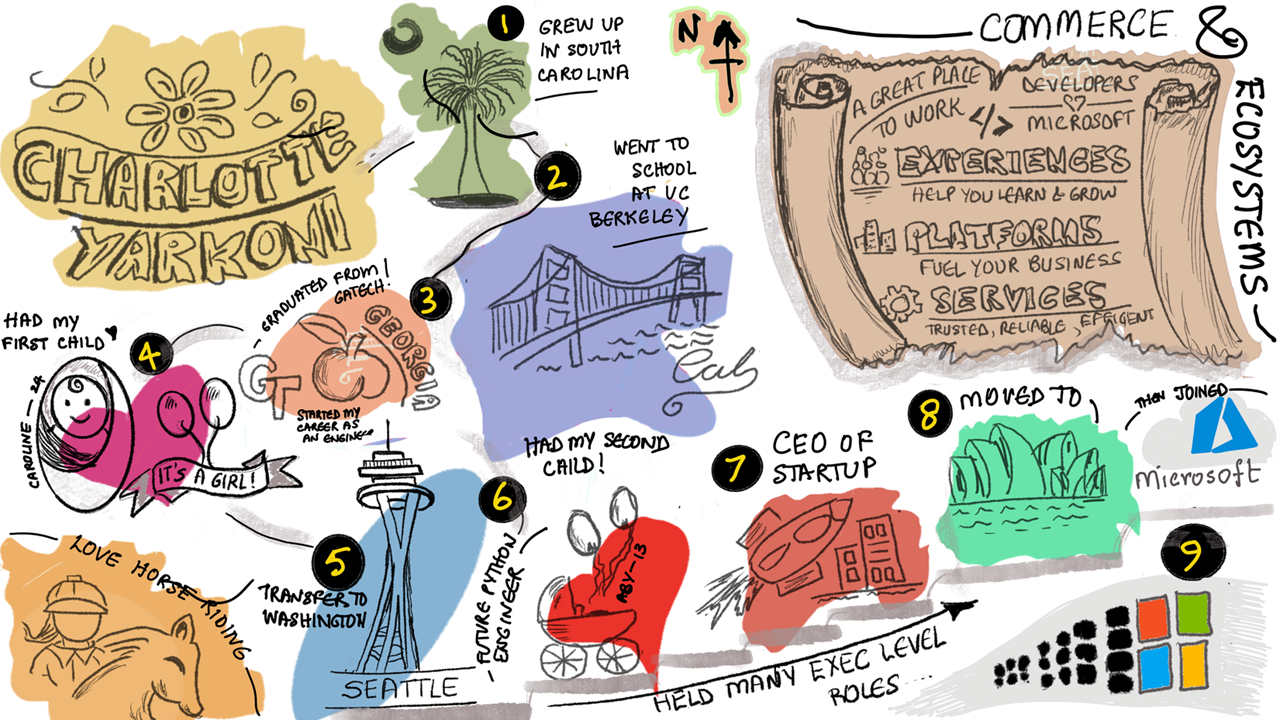
For more from Charlotte, follow her web series In Real Life, where she interviews Microsoft employees about their passion projects, athletic endeavors, favorite causes, and more.



